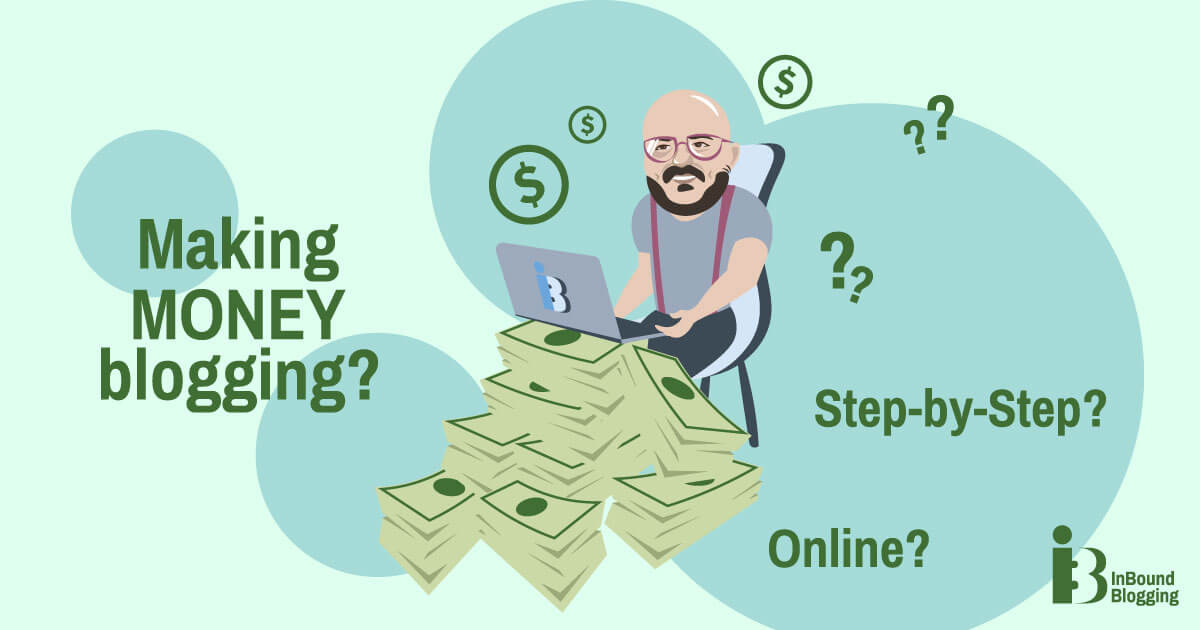Playback speed:
Deciding to buy a blog could be one of the most lucrative decisions you make this year.
After all, blogs are an incredible source of both passive and active income. With the right blogging strategy, you can promote products to customers, generate sales, and drive revenue. You can also open the door to additional cash through advertisements and partnerships.
Let’s look at the facts.
There are more than 500 million blogs in the world, out of an approximate 1.7 billion websites worldwide. What’s more, over 409 million people view about 20 billion blog pages per month. They use these posts to conduct purchasing research, make decisions, and learn about products.
Blogs are a core component of “content marketing”, an environment expected to grow to the value of $487.24 billion by 2026. They help companies engage with their audience, and unlock opportunities for growth and sales. Ultimately, blogging is one of the most amazing things you can do online.
Of course, buying a blog comes with its own set of challenges to consider. Here’s what you need to know if you’re thinking of buying blogs for profit.
How to Buy a Blog in a Few Simple Steps
The good news is that buying a blog doesn’t have to be nearly as complicated as it may first seem.
In fact, it can be much easier than developing your own profitable blog from scratch. When you purchase a pre-existing blog, you get access not just to all of its content, but also an existing audience of avid readers, partners, and promoters. However, to ensure you’re setting yourself up for success, you’ll need to take a few key steps:
Step 1: Find a niche you care about
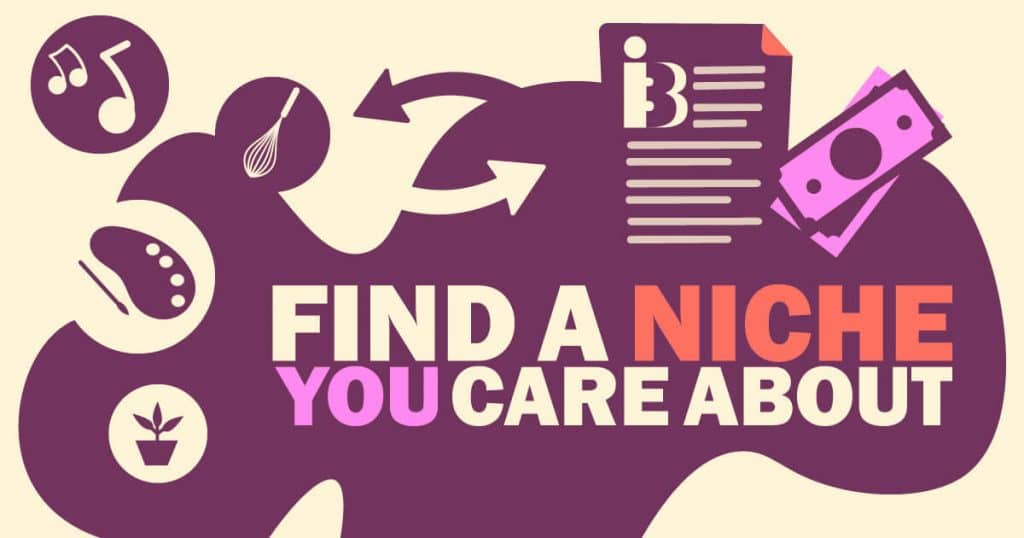
When you buy a blog, you won’t have to create as much content from scratch, but you’ll still be responsible for maintaining the website and filling it with fresh new content over time. Unless you plan on hiring someone to do all of your content marketing for you, it’s a good idea to choose a niche you’re already interested in.
If you’re invested in home décor, design, and renovation, you could think about buying a home blog. If you’re an automotive enthusiast, buying a car blog will allow you to share your expertise and knowledge in the industry. The key to success when choosing a niche is knowing what kind of content customers actually like to read.
You can look online for blogging statistics about the number of content producers who already exist in each industry, to help you determine whether your field of expertise is over-saturated. The chances are that most industries will have millions of existing blogs attributed to them, so make sure you can offer something unique to your readers when making your choice.
Step 2: Check the uniqueness and originality of the content
When you’re buying a blog website, you’re not just purchasing the underlying technical components of the site. You’re also buying the existing content associated with that blog. This means that it’s important to ensure the content you’re investing in is high in quality. Take the time to read through some of the content, and find out as much as you can about the blog’s engagement levels and follower counts. This should help you to determine whether the blog is profitable.
Websites like Copyscape can also help you to search for content which appears to mimic other blogs from different websites.
While there’s likely to be some overlap between the different pieces of content across multiple sites, a website with no or limited original pieces can be a bad sign. You don’t want to have to waste time on re-writing all of the content on your blog before you can start making money.
Step 3: Examine the blog traffic statistics
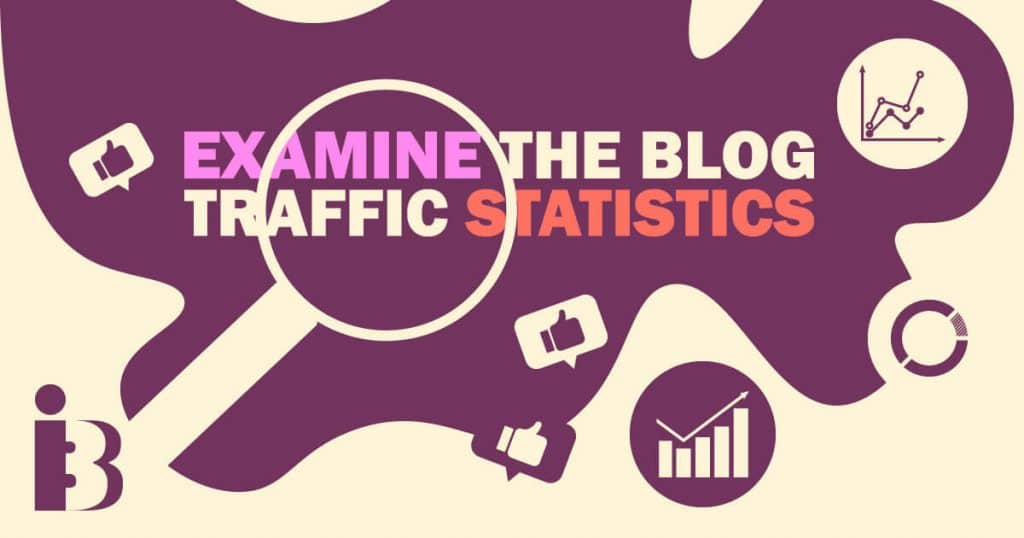
While examining the overall quality of your blog, it’s also worth checking some valuable statistics. If you’re buying a blog from an existing website owner, they should be able to provide you with some useful reports on things like traffic and overall ranking potential.
However, you can also use tools like Google Analytics yourself, to see the degree of authority your potential purchase has. Third-party tools like Semrush can also offer insight into the overall health and traffic of a blog.
The more traffic you can get from your blog, the more likely you are to attract potential affiliates and partners to help you monetize your online content. Ideally, you’ll want to know where your traffic sources are coming from too. For instance, does the blog have a good SEO strategy, or is it reliant primarily on social media and email for collecting prospects?
Step 4: Analyze existing revenue and growth potential
Preferably, your blog won’t only attract plenty of traffic from search engines, with optimized, high-quality content, but also convert potential visitors. If you’re buying a blog that sells something or has affiliate partnerships, ask the business owner for insights into how frequently customers convert when engaging with blog content.
You can also check opportunities for revenue yourself, by diving into the performance of the blog on multiple levels. Ask yourself whether the blog currently runs affiliate marketing campaigns, or sponsored ads and whether it’s generating revenue through Google AdSense.
If your blog is in a specific industry, it may be exposed to various seasonal changes in its revenue. Some retail blogs have higher revenue around the holidays and winter months. When examining your blog’s revenue, it’s also worth looking into the “cost per acquisition” or CPA for each customer. How much is the current business owner spending on ads and content creation to accelerate growth?
Step 5: Explore the blog’s business operations
To make money with blogging, companies need to invest in a range of processes designed to bring traffic to a website and convert that traffic into sales. While you don’t necessarily need to continue using the same strategy the previous business owner leveraged for blog monetization, you should have a clear idea of what they’ve been doing to promote their blog.
If possible, it’s worth setting up a meeting with the current owner, either virtually or in-person so you can ask some insightful questions. They should be able to explain why the blog is achieving its current results. Did they just get lucky, or have they invested in specific marketing campaigns?
If meeting with the blog owner isn’t an option, you might need to look at the listing for the blog you want to buy for more information. Try to dive into the information available to determine whether the company has already begun running paid advertising campaigns, or whether there’s likely to be some additional expenses associated with running the blog.
Step 6: Start the acquisition process
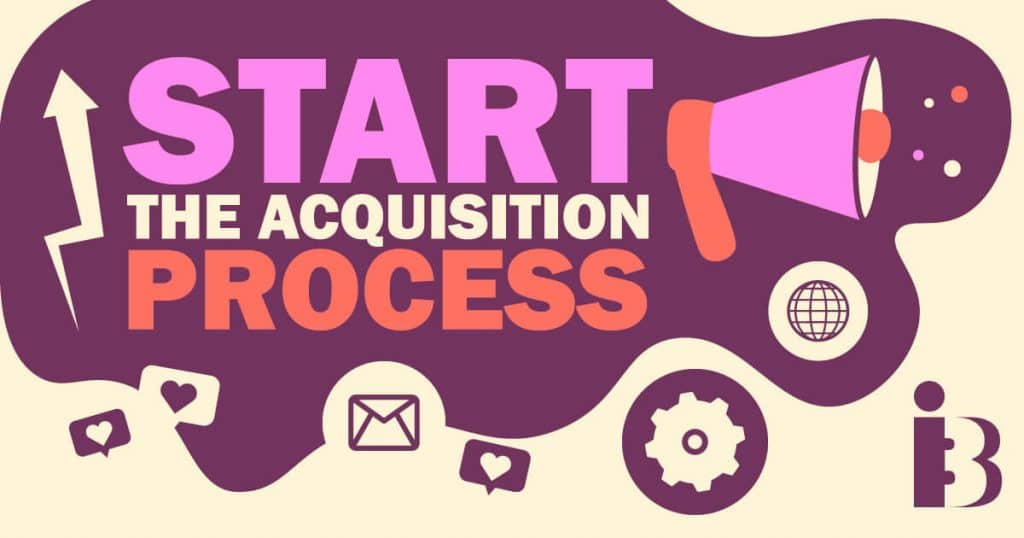
The actual transfer process followed when it’s time to buy a blog can vary depending on the strategy you choose. Some individuals purchase blogs directly from website owners, after a careful valuation of the blog’s potential and a little negotiation. There are also websites that list available online stores, blogs, and assets for sale across the web.
In some cases, it can be helpful to have a broker assist you in making the right purchasing decisions. Brokers have extensive experience in buying blogs for profit. They’ll be able to help you with the legal processes involved in transferring the company to your name. They can also help you to pinpoint blind spots and issues you might have overlooked.
Whether you’re working with a broker or going it alone, it’s worth making sure you know exactly what you’re paying for when you purchase your blog. Are you going to get access to all of the backend tools so you can track and manage SEO and permalinks on your side, or will you be handing this process over to someone else? Does the blog have social media accounts that drive traffic to it and will you acquire those as well?
After you’ve bought your blog, are you going to be solely responsible for creating new content, or will you have access to the content creation team who’ve already been working for the existing website owner? Setting out expectations in advance will help to avoid any costly mistakes.
The Best Places to Find Blogs for Sale
If you’re interested in purchasing an existing blog, there are several places you can look to find blogs for sale. Here are some of the best platforms to find blogs that are available for purchase:
1. Flippa
Flippa is a popular online marketplace for buying and selling all sorts of websites. You can browse through a wide variety of listings, including established blogs, and filter based on niche, revenue, and other criteria.
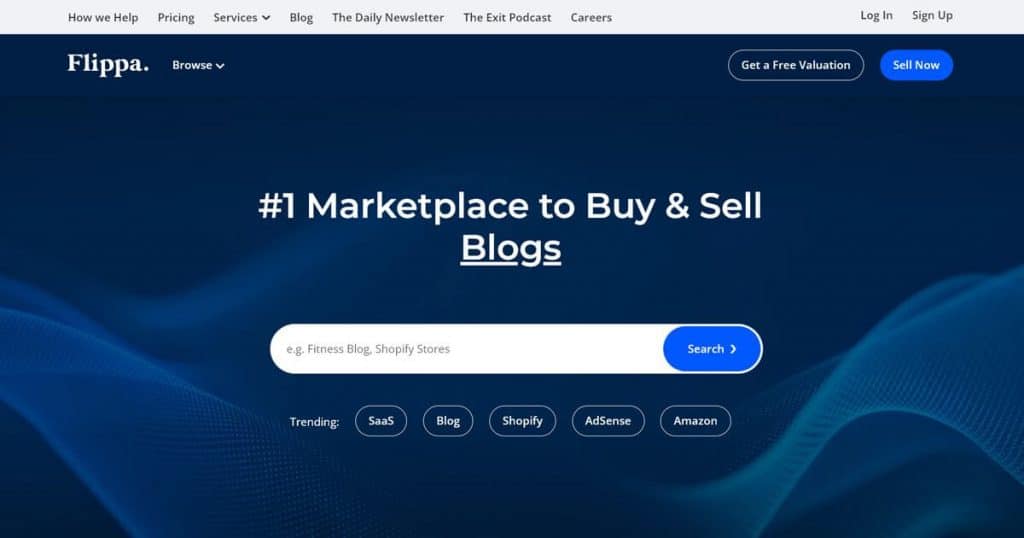
2. Empire Flippers
Empire Flippers specializes in brokering the sale of profitable online businesses, including blogs. They vet listings thoroughly to ensure quality and provide detailed financial information. As the name suggests, this website is a place where websites are flipped much like real estate.
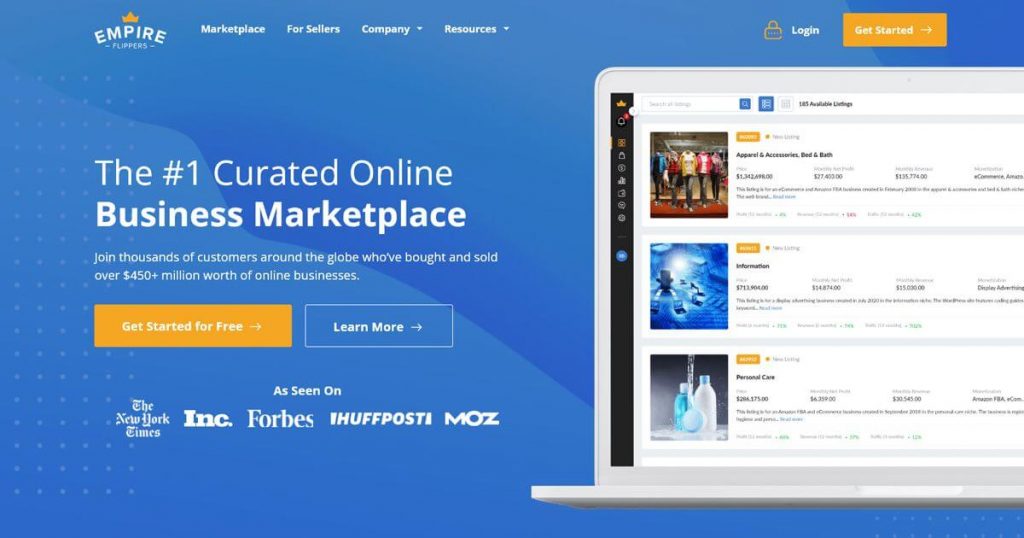
3. Niche Investor
Niche Investor specializes in selling online businesses, including blogs. They have a team of experts who can help you through the buying process.
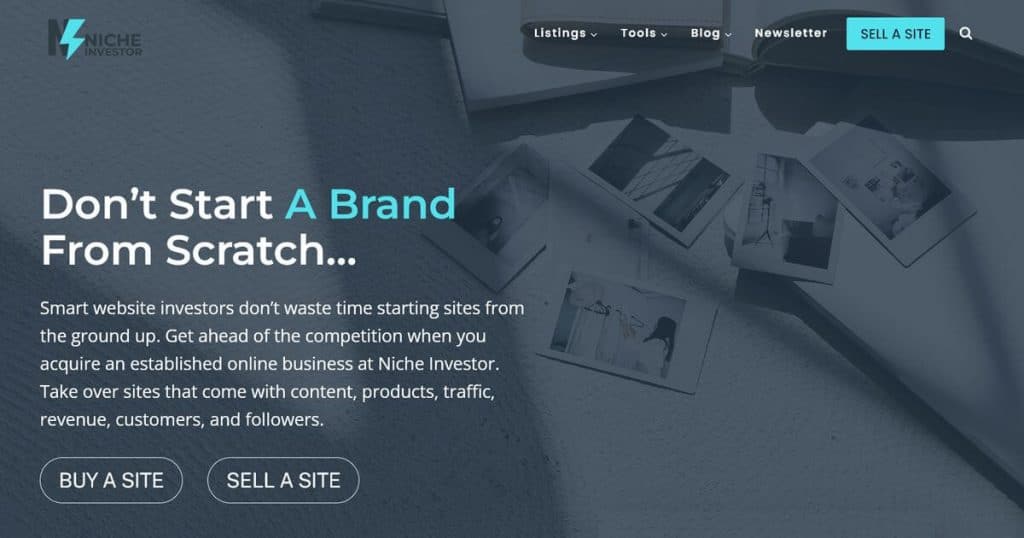
4. Facebook Groups
Other than designated online marketplaces, there are many Facebook groups where site owners list their websites for sale. One benefit of these groups is that you can contact the blog owner directly and make an offer. However, be careful when buying a blog without professional verification, as it comes with risks.
Always consider the potential return on investment when buying a blog for profit. Be smart about your choice and invest in a website with a good domain name and quality content.
How to Value a Blog Website: The Basics
If you’re buying blogs for profit, the most important thing you can do is gain a clear understanding of the value or worth of the blog before you dive in. There are various metrics and KPIs which indicate just how valuable each blog can be. Working with a broker can be extremely helpful in this regard, as they can assist you in figuring out what kind of ROI your blog can deliver.
However, for the most part, blogs are valued according to the following factors:
Website traffic
The more traffic you regularly get to your blog, the more likely it is that you’ll make a profit. You should be able to gain a clear view of both recurring and unique traffic, to determine how many pre-existing customers you might have, as well as how many new potential clients you can attract each month or year.
The traffic you generate should also be high in quality, and specific to your chosen niche. Most of the best blogs should be getting around 10,000 visits per month, with at least 50% of those visits attributed to organic search engine traffic. You don’t want to pay too much to maintain traffic numbers.
Income opportunities
Once you’ve purchased a blog, you can add as many new income streams into the mix as you like, experimenting with affiliate marketing, partnerships, and ads. However, if the blog is already making money from a range of different streams, this means you won’t have to work as hard to make it profitable. Look into things like Google AdSense and Amazon аffiliate opportunities.
Find out if the blog is highly reliant on paid advertising, and decide whether you have the skills required to continue with PPC ads going forward. Check the average revenue of the blog over several months or years if possible, to get a clear insight into its potential.
Additional value added
The value you generate from a blog won’t always come from direct conversions. There are other valuable components which can make a blog more worthwhile and profitable. For instance, a high number of email subscribers indicates that you already have an engaged following for your blog which you can convert with nurturing campaigns.
A strong social media presence or an excellent search engine optimization campaign suggest that you’ll have plenty of opportunities to continue growing your blog going forward too. Check the page rank of your potential blog on Google, and make sure they’re not already being penalized by search engines. Ask the blog seller what they consider their most valuable assets to be.
FAQ
Is it possible to buy a blog?
Buying a blog isn’t just possible, it can also be a relatively straightforward process in the right circumstances. There are websites where you can find directories of blogs suited to your niche already listed and available for purchase. You can also consider contacting the owner of a blog you like and asking if they have any desire to sell.
How do you assess blog income?
The easiest way to assess a blog’s monthly income is to ask for insights from the existing website owner. However, you can also do your own research by looking into the analytics around a blog when it comes to things like affiliate ads, conversions, and AdSense opportunities. Check to see whether the blog has any existing affiliate campaigns or promotions running, such as sponsored posts for partner companies. This should help you to identify if your blog can make money.
Does buying/selling blogs constitute a good business model?
Buying and selling blogs for profit can be an excellent way to earn some cash. You can either purchase current blogs and transform them into passive income opportunities with affiliate links and ads, or you can “flip” a blog. This involves enhancing and optimizing the blog you purchase so it becomes more valuable to future buyers.
